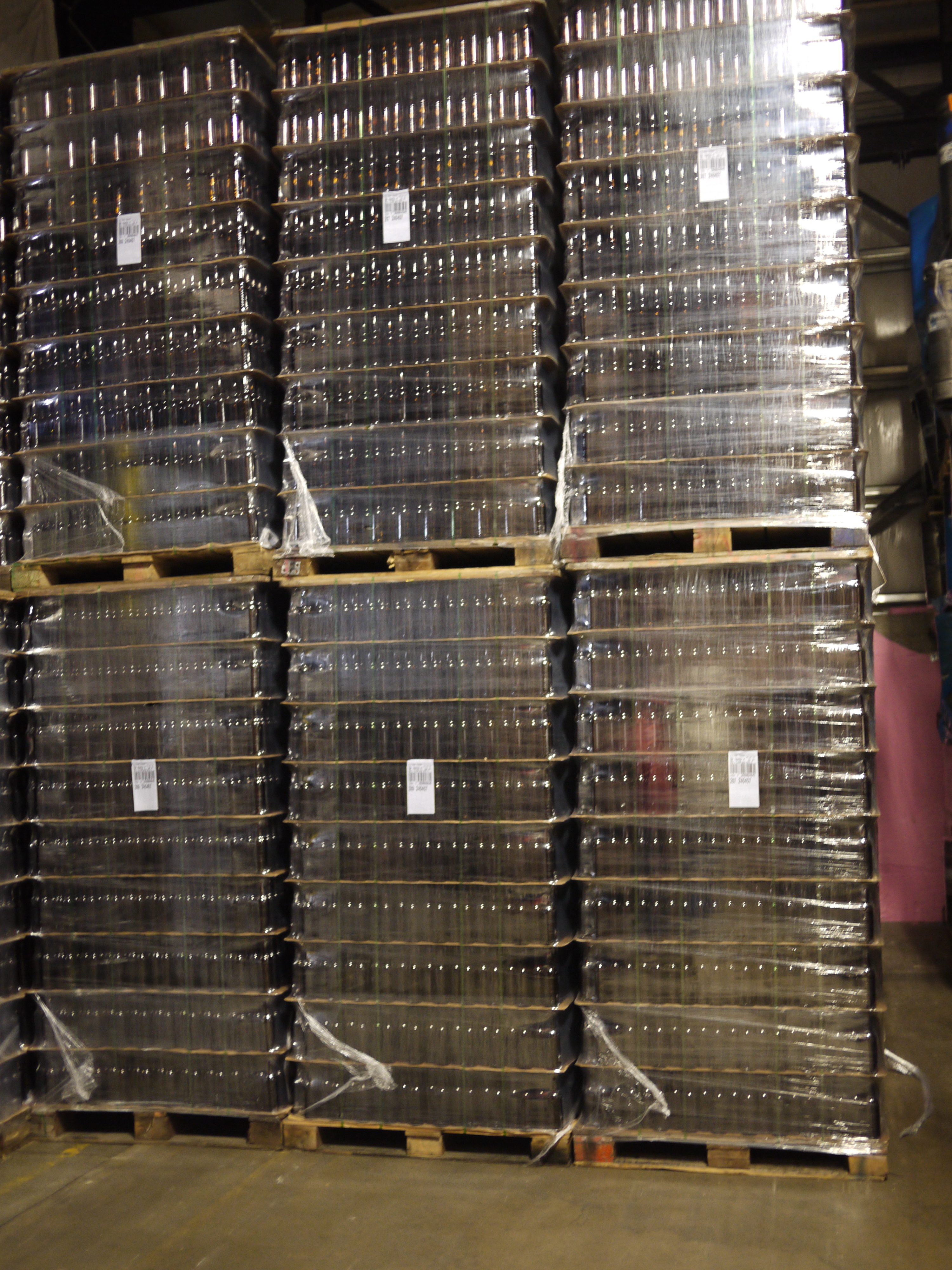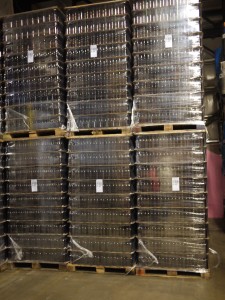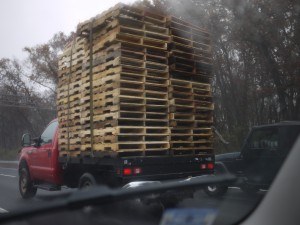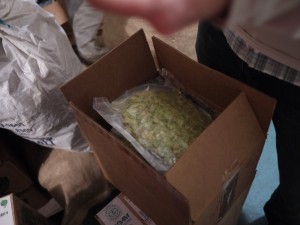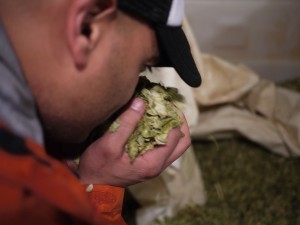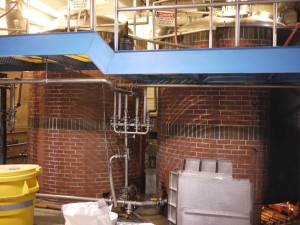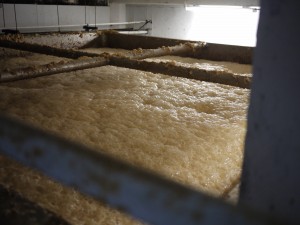I come to this project knowing nothing about beer. I’ve never made beer. Until recently I never really drank beer. I was turned on by a Mikkeller beer, a beer from Denmark imported by the Shelton Brothers who operate in a town next to where I grew up. But I didn’t even know that when I drank the beer. I just knew I loved the way it tasted.
And that’s what beer is going to be about at Clover: taste. First and foremost we want to bring beer into the culinary space. We want to serve you some stuff that tastes great (assuming you’re over 21 of course).
Back to me and my complete ignorance of how beer is made. Jon Cadoux, of Peak Organic, was kind enough to carve out a few hours on a rainy evening in Portland, ME the other week to give us a tour. Portland is home ofsome beautiful beers, including Peak, and Allagash. Jon was very patient as I asked a ton of questions and tried to understand the entire process.
One of the things that struck me was how focused Jon is on suppliers and ingredients. Sort of like most good chefs. It almost felt like he’s approached beer saying: let’s get the suppliers and inputs right, and we’ll figure out the best way to showcase those. Sort of like the coffee we serve. Get the beans you like from individual growers, then roast them to bring out their best qualities.
So when we turned the corner and Jon said “now I’m going to show you what I’m least proud of” I was expecting it to be some additive or something. It wasn’t. It was pallets upon pallets of empty glass bottles. (For the record Peak doesn’t use additives which is really unusual. No anti-foaming agents, etc.)
Jon explained to me that the glass industry, for all they spin about recycling and reusability, makes him sick. “These bottles are not going to be recycled” he said (or something like that) and those that are take a massive amount of energy/ waste to process.
It was Jon who first suggested we move away from bottles (which is what I was planning) and serve draft only. Not because draft is somehow fresher, but because it would eliminate waste. We’re talking about 400 servings from one keg, which when empty is sent back the brewer to be cleaned and re-filled. And you’re going to be drinking from our compostable cups (more on that later). So 400 glass bottles/ keg are not going to be used. Crazy, and exciting, isn’t it?
One other quick story about our trip, and then some pictures. Jon took us into a large walk-in. Much larger than ours. And he said: “this is my favorite room.” I didn’t know what he was talking about until I took a deep breath. It was the hops room. And the aroma was just crazy. Really amazing. Peak works with some really really small producers (I’m talking 4 zip-lock bags represent the entire year’s crop small), with the hopes that they can grow more organic.
We’re excited to be learning about all of this, and excited to be entering at what is looking to me like a turning point in beer. We have the most amazing beers being made. With incredible local talent. There’s an effort to grow better ingredients, and to source those locally. And soon, we hope, we’ll be able to buy beer made from ingredients that are processed in Massachusetts (which hasn’t been the case in something like 80 years). In 2009 Peak just helped bring the first Maine grown commercial harvest of hops since the 1880s, and they were organic. And the most exciting thing about all of this, like the food on your plate, is that the local stuff tastes better. I can’t wait.
I love Maine. That looks like something I’d do.
That is one farmer’s annual supply of hops. He bought a vacuum sealer at Target to package them.
That’s Rolando with his nose buried in hops. We’re going to have to get a bag of these. You know how much fun it is to take a deep inhale of a great coffee from the bag? I think hops is a step beyond that.
Those are the giant tanks where the beer is made.
That is yeast bubbles. Beautiful, hunh? Some beer is made exposed to the air (this one) other beer is made without exposure to the air. I’m guessing it’s aerobic and anaerobic bacteria, but I haven’t done enough research to confirm that yet.

